TERRA ANTARCTICA
ANTARCTICA
If you believe as I do that the Earth is a living thing, then Antarctica is its pulse. Each year the continent freezes solid, then parts of it melt, freezes solid, then melts. It is this annual process that makes Antarctica so important today, its influence on the world’s oceans vast, when warming temperatures are impacting and threatening to change life all over the planet.
THE HEART OF ANTARCTICA
I
like being places where you are forced to listen to your own heartbeat, commanded by nature to pay attention to the in and out of each and every breath. Antarctica is definitely one of those places.
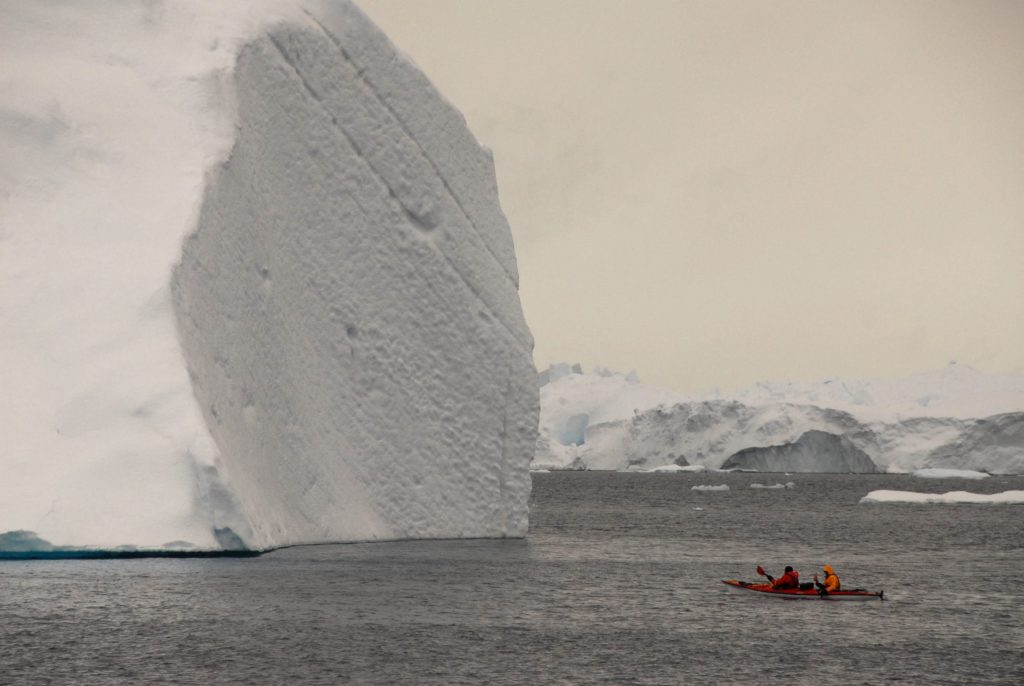
It was so windy last night that I thought at one point my tent was going to explode. Literally. Thanks to a trio of pinholes along one seam, the sides of the thin nylon-membrane were being sucked in by the forty mile per hour gusts, and then exploded outwards, making a cracking sound, like a cherry bomb going off. This went on for several hours. With morning, the winds dropped. By noon, they were back, gusting katabatics whipping snow across the ground at chest level at thirty to forty miles per hour. As I trudged across the crusty snow, the wind whistling inside my fur-lined hood was the sound of freedom…and frostbite.
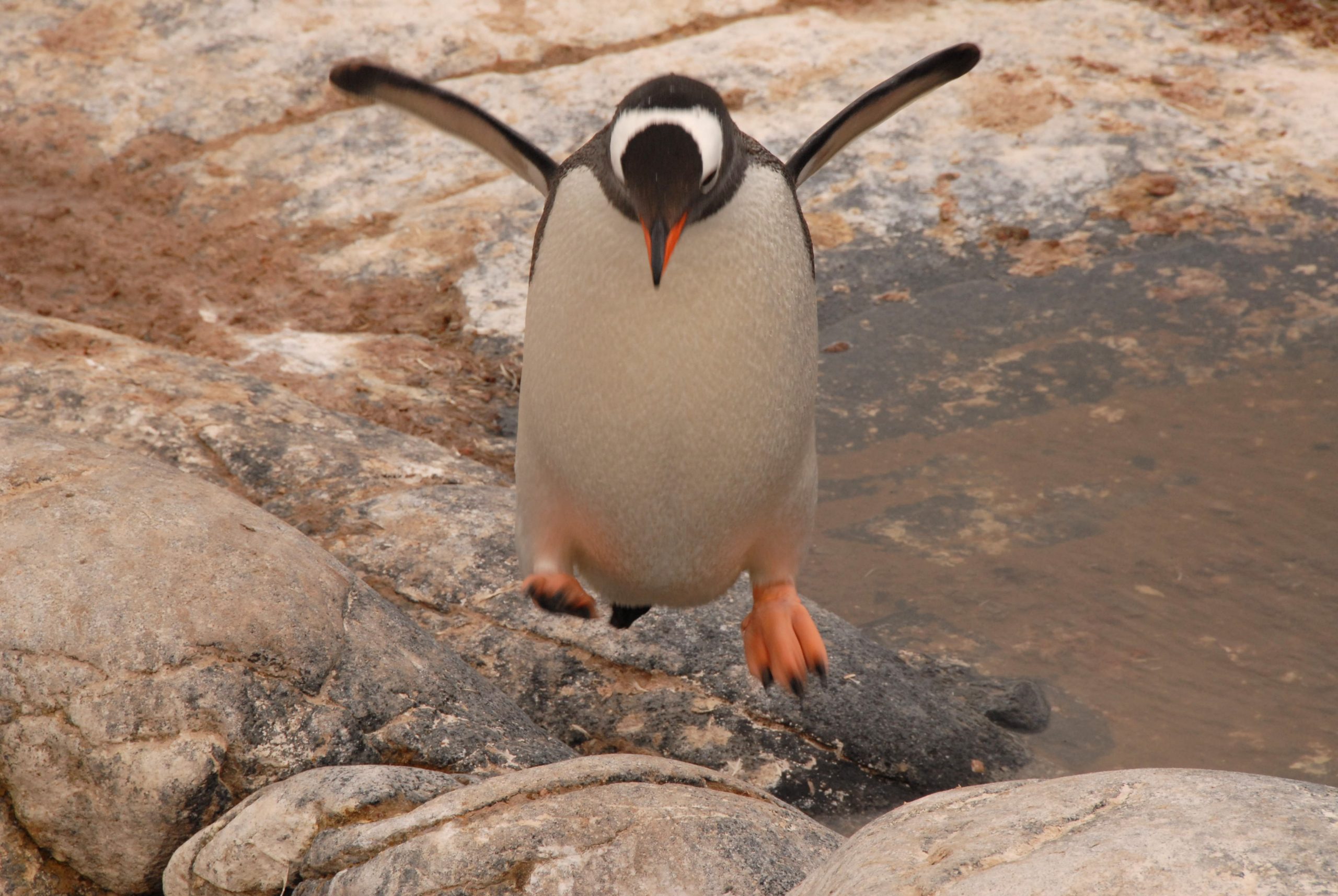
My friend Steve Pinfield and I spent the afternoon kick stepping up one thousand feet of an ice-and-snow packed bowl, to the peak of the tallest of the Patriot Hills. At that juncture we were 400 miles from the Southern Ocean, 600 miles from the nearest scientific base at the South Pole and 1,800 miles from the nearest town at the southern tip of Chile. Atop the ridge we were met by gale-force winds, blowing up the other side of the hills from the flat ice that separates the Patriots from the Independence Range. Looking towards Mt. Vinson, Antarctica’s tallest peak, was a jagged line of granite, separated by fields of ice and snow, sastrugi and crevasses. With our axes dug in for stability we continued up the knife-edge of the rocky ridge to the snowy summit. Thankfully the wind had turned constant, not gusty. Big gusts would have easily picked us off and dumped us over the edge. Everywhere we looked the wilderness was vast, unending. It is remarkably humbling to stand so far beyond civilization, so far beyond help.
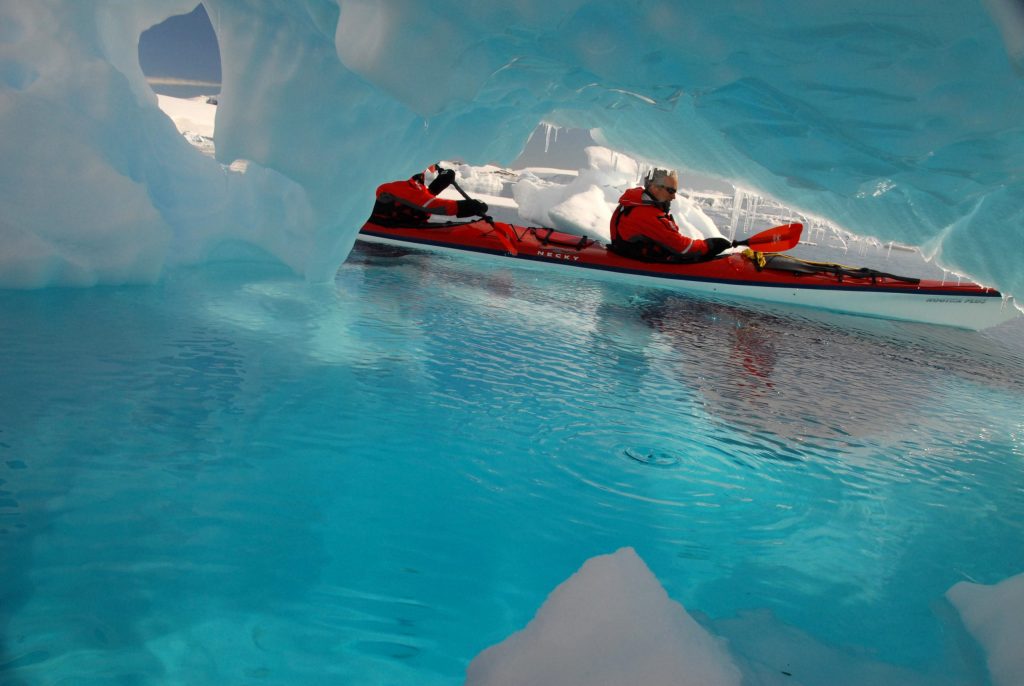
That we stood there at all, in the very heart of the seventh continent, suggests it is not totally beyond reach. But almost. My first experience with Antarctica was also my first assignment for National Geographic, to document the 1989-90 Trans-Antarctic Expedition. Led by American Will Steger and Frenchman Jean-Louis Etienne, a six man team, each representing a different country, traversed the continent along the longest route possible – 3,741 miles in 221 days. It will stand as the longest ever crossing of the continent by dogsled since the following year dogs were banned from Antarctica forever.
After this, Antarctica got into my blood. I have now enjoyed many adventures here, from kayaking the length of its Peninsula to ascending its highest peaks. The second time I arrived at the South Pole was by Twin Otter, accompanying a small group of high-paying tourists. It was both thrilling for me personally to step foot at the bottom of the earth, but intimidating too, since my companions never fully realised exactly how remote, and lucky, they were. A couple of them treated it like it was just another day, checking South Pole off some imaginary list. For me, taking a long walk perpendicular to the dome until it faded from sight was one of the most thrilling afternoons of my life. My one disappointment at the South Pole station was interacting with several of the summer-season crew who admitted they barely poked their heads outside the dome. Made me wonder why, other than some kind of weird bragging rights that you’d ventured to Antarctica, only to spend your days hiding out from it.
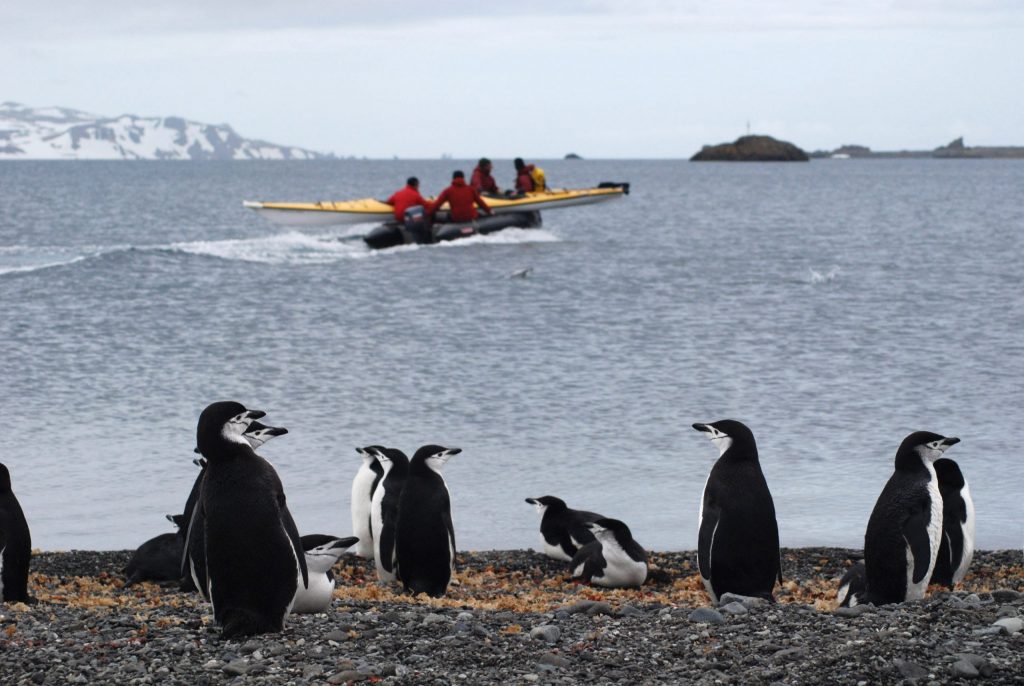
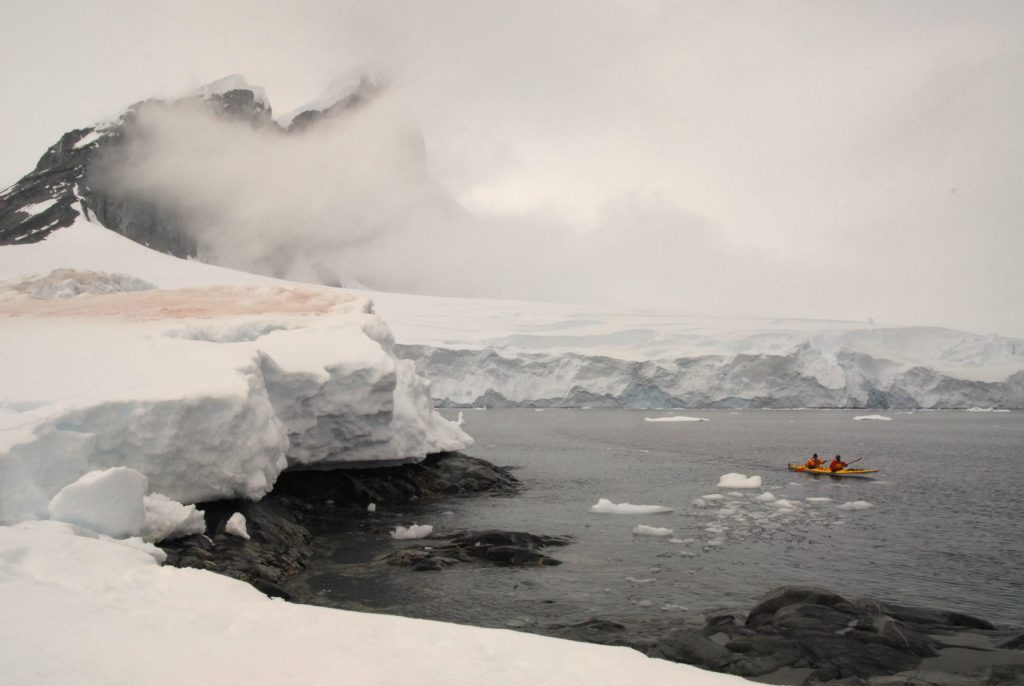
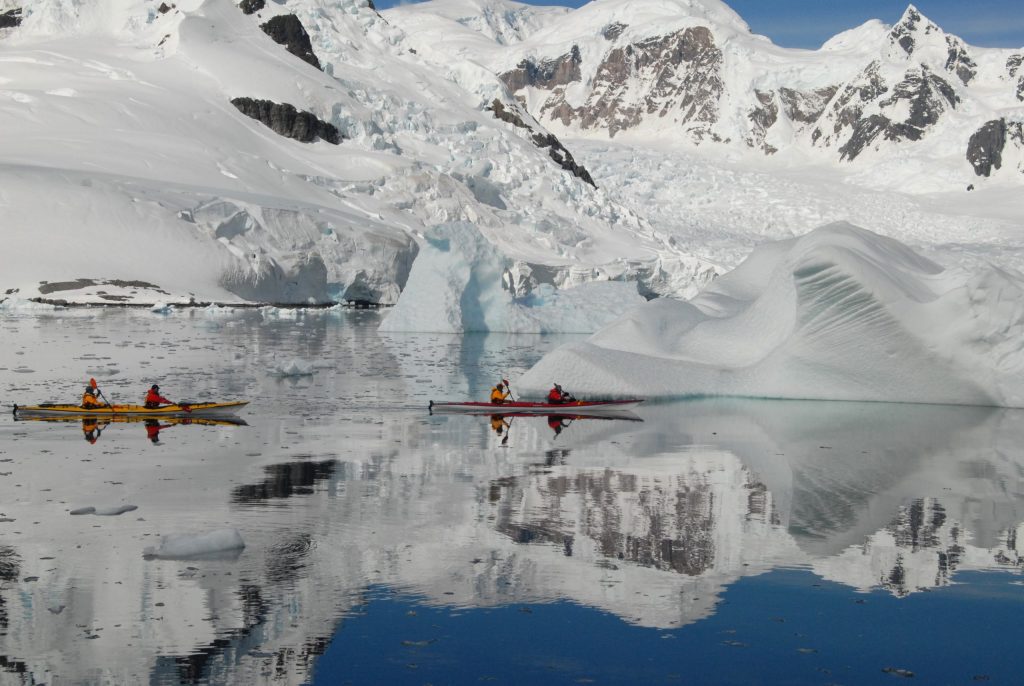
In the early twenty-first century tourism has replaced whaling as Antarctica’s boom industry. Demand has rocketed at the same time that big boat operators have figured out the best routes, landings and anchorages. More than thirty cruise ships, ranging from the 3,700-capacity Golden Princess to the Endeavour, make back-to-back visits each season, turning the port of Ushuaia in Argentina into a buzzing Antarctic gateway. Yet as far back as 1938, Australian explorer Douglas Mawson, who accomplished many firsts here, would ponder how the continent would evolve: ‘from an economic aspect, the frozen South may not attract immediate attention, but who can say what a train of entrepreneurs the future may bring?’
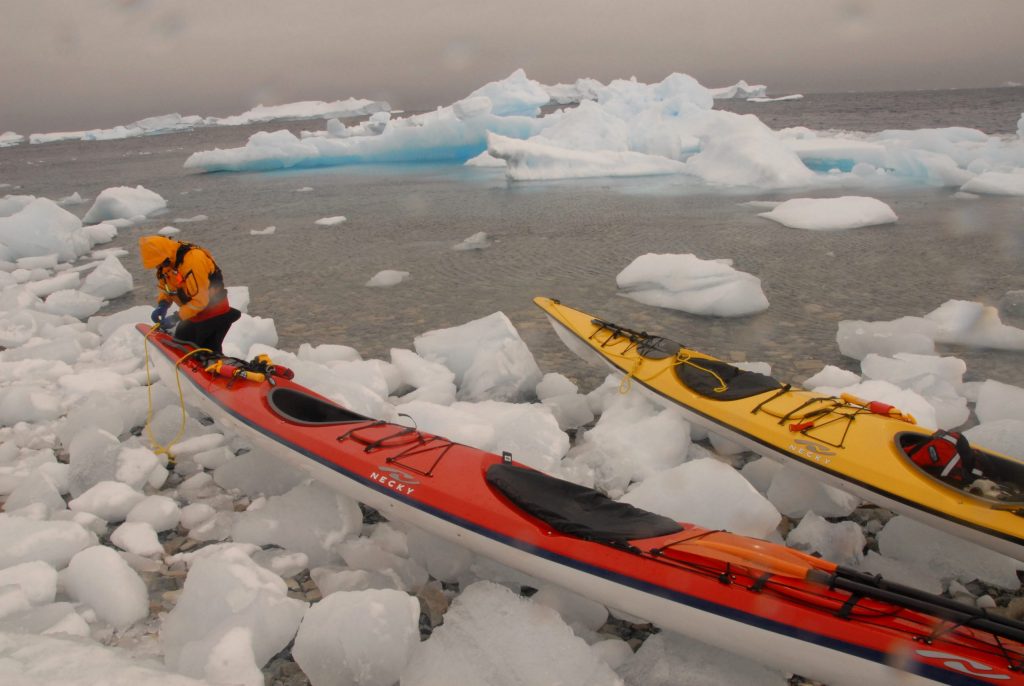
At this juncture, we are still guessing at the line-up of entrepreneurs who may arrive. As the ice along its edges recedes, perhaps oil men and coal miners? Hoteliers? Perhaps desert sheiks in search of fresh drinking water hidden in its ice? Natural resources may also prove to be the economic lure that whaling and sealing were two centuries ago. But today it is other impacts of man, which are now affecting even this unpopulated continent that are most worrying.
The Antarctic affects all our lives, but through forces so deep and elemental that we’re not even aware of them. If in the final equation the surface of the Earth is a single, complex system, then Antarctica is its heart, the slowly beating pump that drives the whole world. Each austral winter, a seven million-square mile halo of sea ice forms around the continent, and each spring trillions of tons of fresh water are released into the ocean as it thaws. This is the planet’s great annual climate cycle, the thermodynamic engine that drives the circulation of ocean currents, redistributing the sun’s heat, regulating climate, forcing the upwelling of deep ocean nutrients, setting the tempo of the planet’s weather.
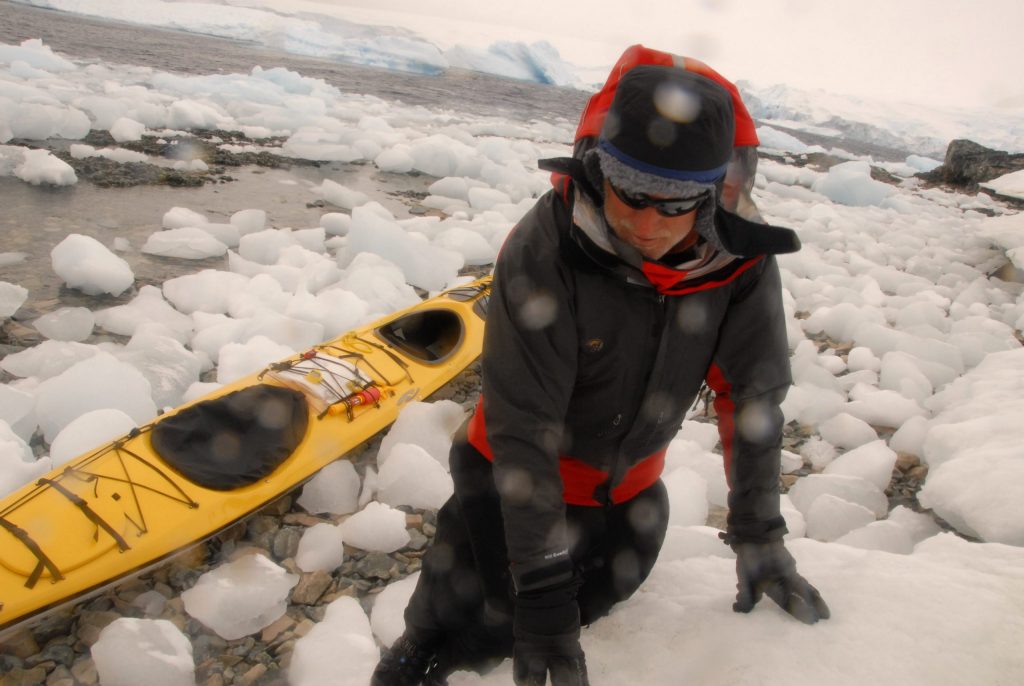
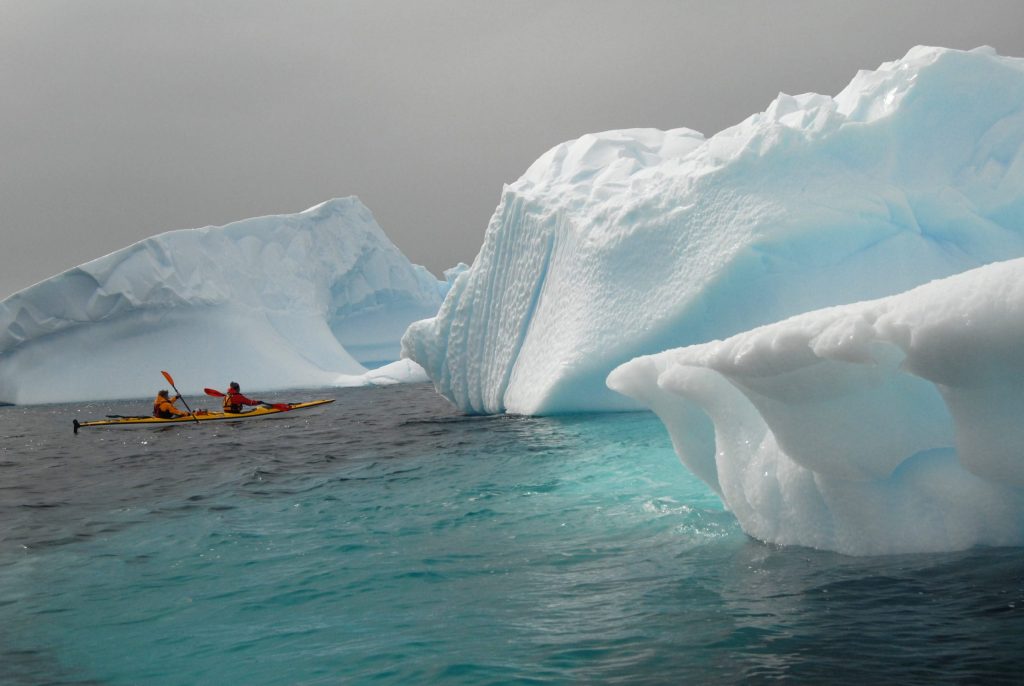
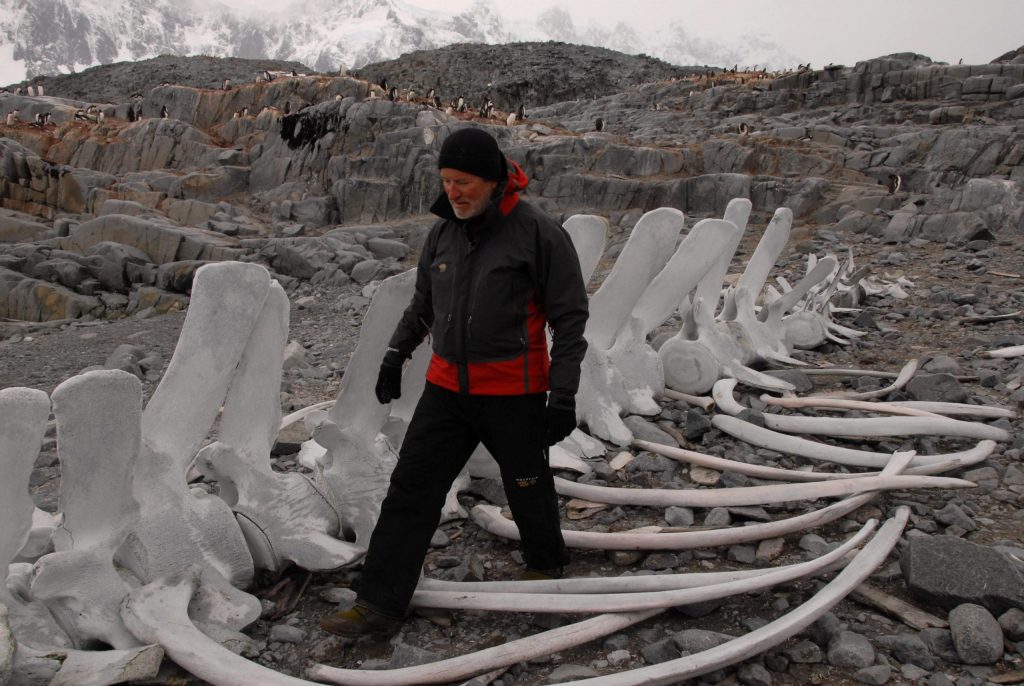
et global change is most clearly seen here. The effects of ozone depletion and global warming are strongest in polar regions, where they are reinforced by atmospheric and meteorological conditions. Because Antarctica is essentially uninhabited and without industry, there is virtually no local pollution: any ecological and climate disturbances on the continent are certainly caused by global forces. Global warming models from the early 1970s predicted that climactic effects of human greenhouse gas emissions would be felt first and most strongly at the poles. More than two decades ago scientists prophesied that one of the first signs of human-caused climate change would be the collapse of the Antarctic Peninsula’s ice sheets. This is exactly what is happening today.
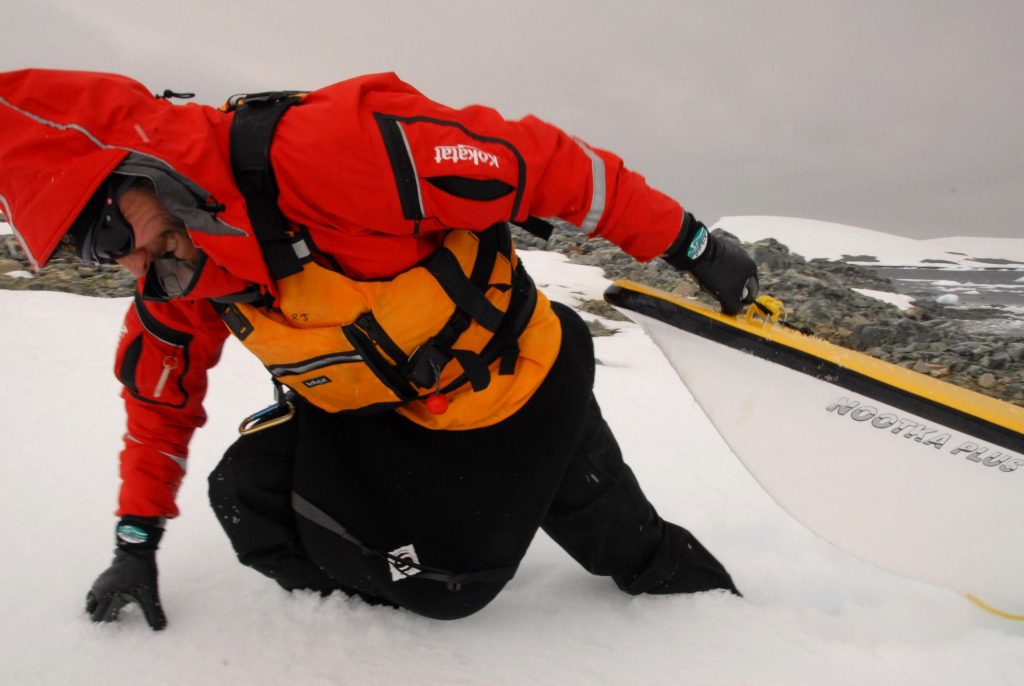
In March 2002 scientists watched the 500-billion-ton Larsen-B ice shelf shatter into thousands of tiny icebergs before their eyes. Four years ago a 160-mile-square section broke off the Wilkins ice shelf. Two of the ten shelves along the Antarctic Peninsula have vanished completely within the past thirty years. Another five have lost between 60 percent and 92 percent of their original extent. What is happening so dramatically, so quickly to those shelves suggests it’s possible the rest of the Peninsula’s ice may deteriorate soon. And fast.
or the moment, even as the continent continues to be more explored each year, much of its ice, three miles thick at some points, remains Antarctica’s protectorate. But the change I’ve seen along its edges is startling. Today when you find yourself in the heart of Antarctica it remains unique: the most remote, the most foreboding, and the most awe-inspiring place on Earth. Yet somehow, Antarctica seems at the same time fragile, in need of our protection.
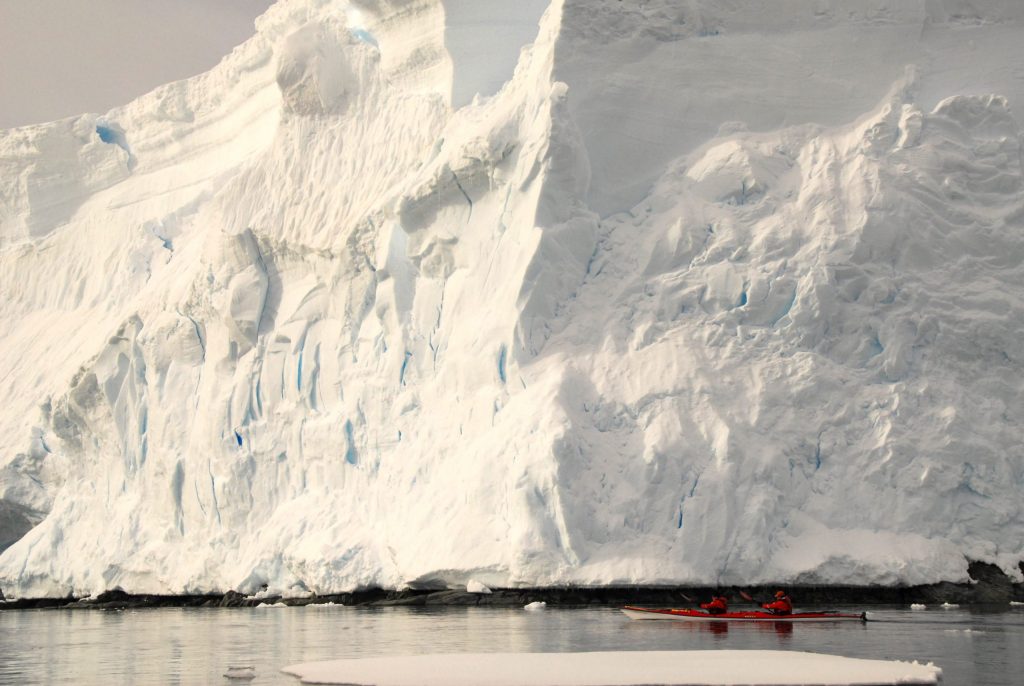
I worry that parts of Antarctica run the risk of becoming ‘Everest-ized’, available to anyone with a week’s holiday and the cash to pay for it. In 2012 a team made the first double crossing of the continent: by jet-fuelled 6×4 Toyota trucks. Which takes some of the romance out of the adventure, doesn’t it, especially when it claimed to be trying to draw attention to environmental concerns while, no doubt, leaving trace all along their route of our fossil fuel dependence. The reality is that such adventures can’t be stopped, nor should they be. I do have real concerns for the Peninsula though when the day comes – not if, but when – the first tourist ship goes down and there’s a sizable oil spill or loss of life. As a species man has a tendency only to respond when truly in trouble; that’s when I’m sure we’ll see more restrictions and enforcement of who can journey to its still treacherous shores.
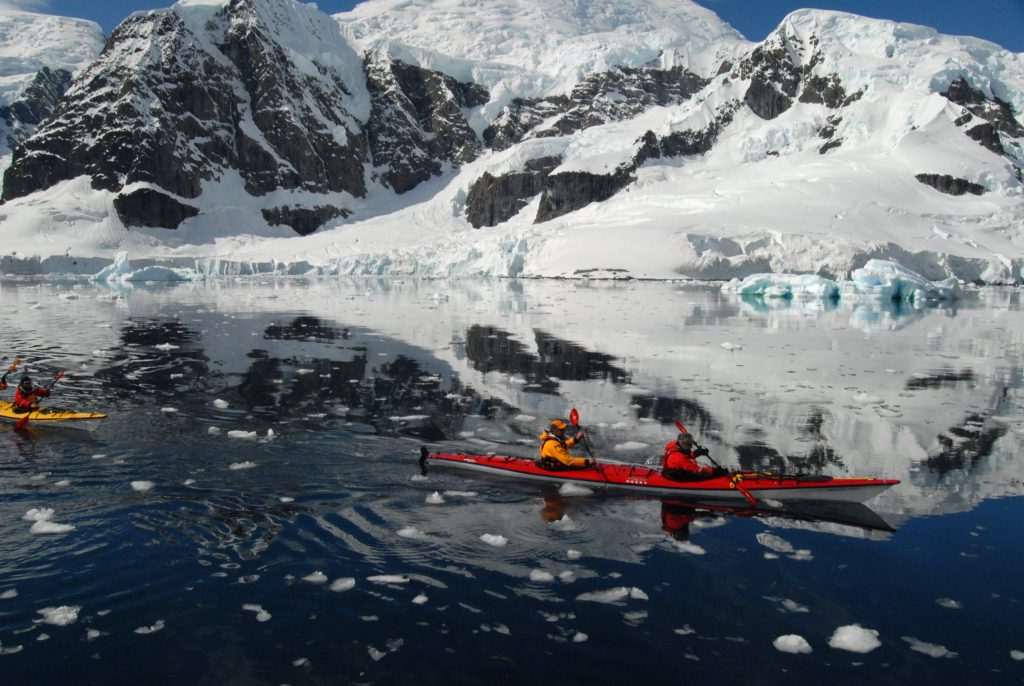
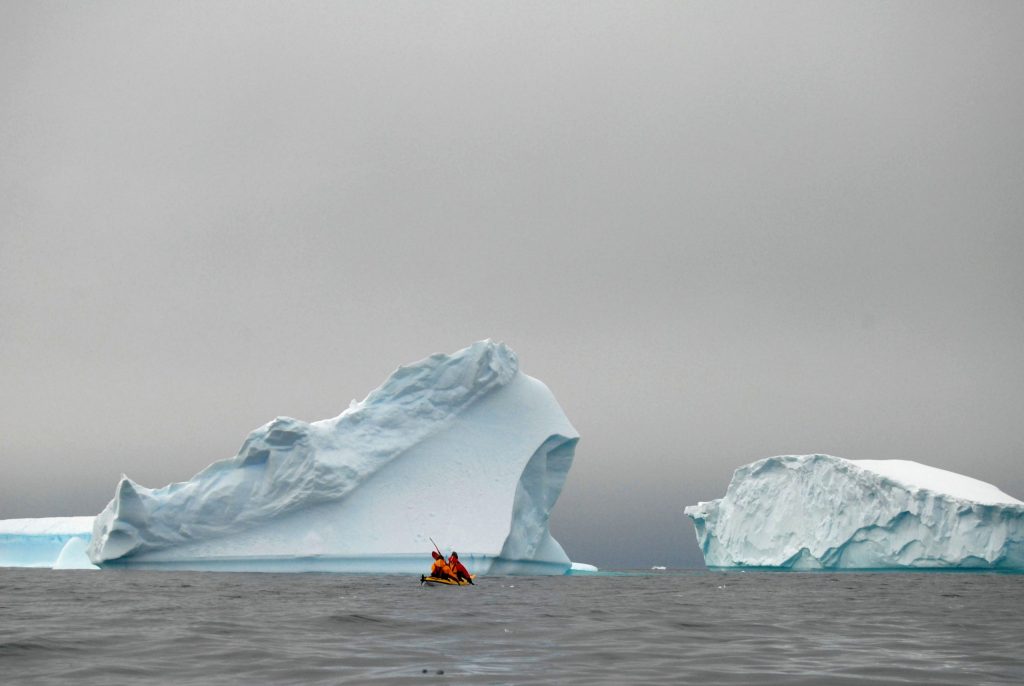
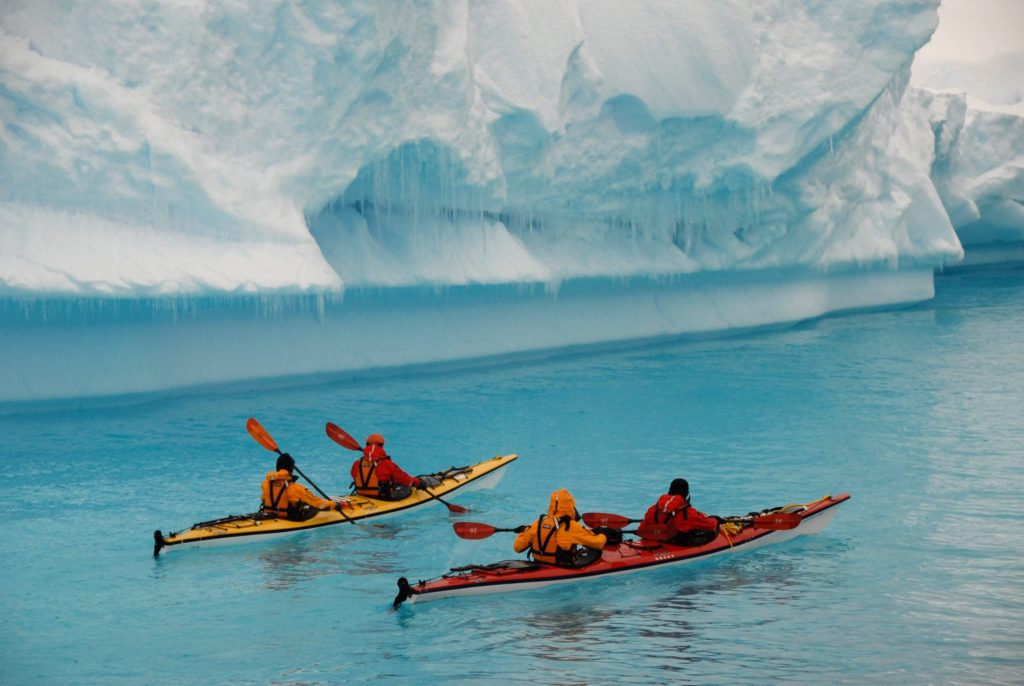
The upside to all these new visits is that you cannot go to Antarctica and not return something of an evangelist or ambassador for protecting the place. You cannot Zodiac through one of its iceberg alleys without coming away feeling it’s the most stunning place on the planet. You cannot stand in the midst of a penguin rookery, or watch 10,000 of the little fellows file away over the hill in single file, without smiling, despite the one-of-a-kind stench that will linger in your nostrils for weeks afterwards. You cannot watch a 100-foot-tall glacier crack and roar and fall into the sea without feeling somehow reverential. You will return home a changed person. Even the most cynical of tourists, those simply out to check the place off some kind of list, cannot help but be moved by Antarctica.